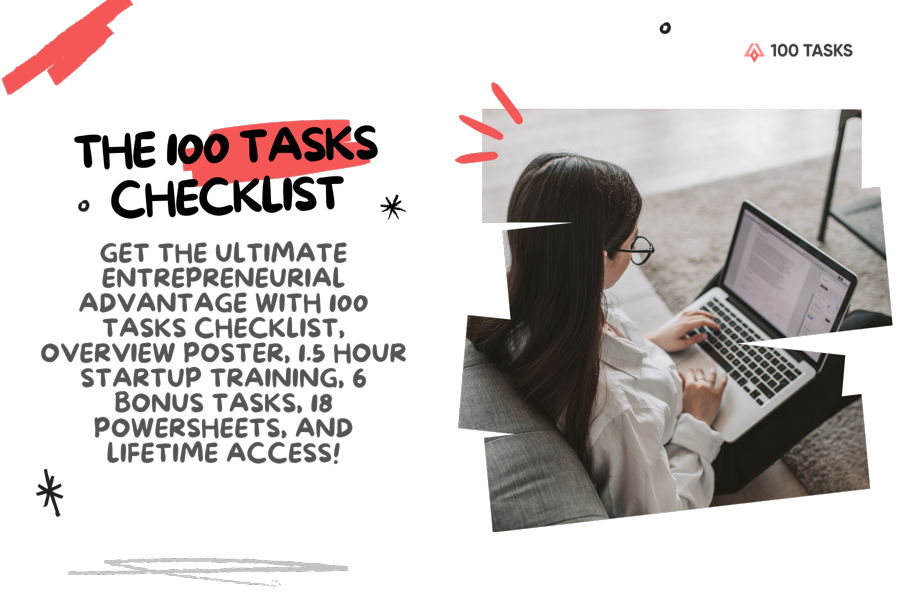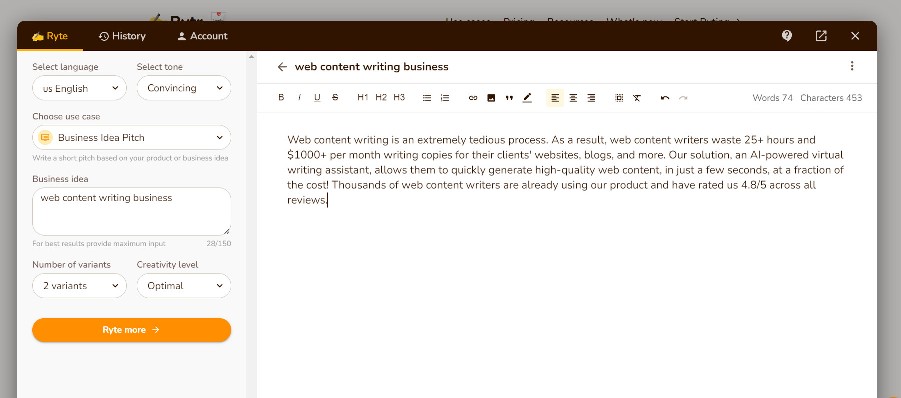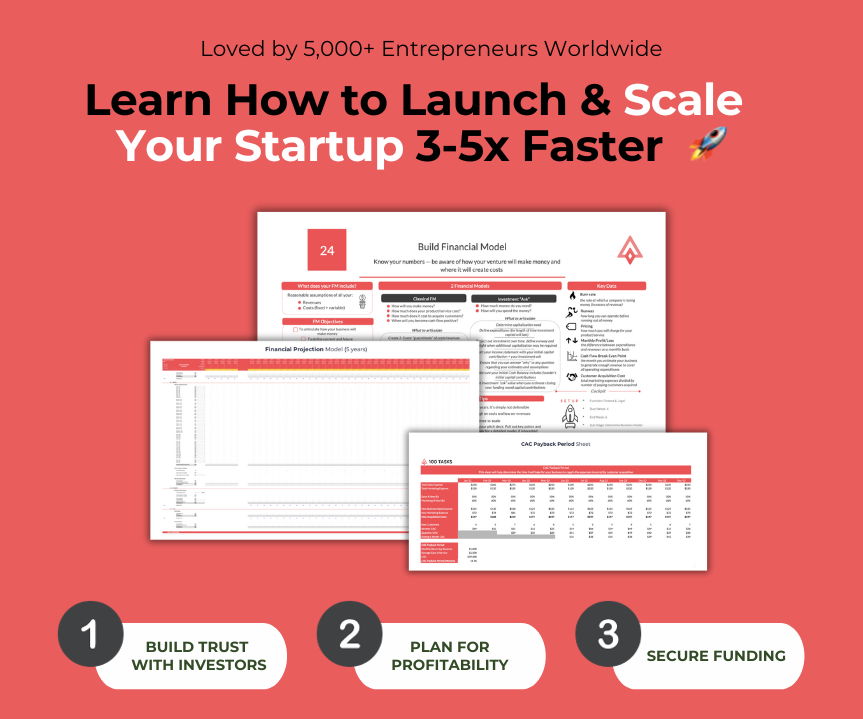Learn how to write the perfect elevator pitch for investors so you can pitch your business idea and start presenting your business plan to investors.
Entrepreneurs with businesses in early start-ups differ on what they believe to be the most important element, although many professionals will argue that creating a solid business plan should definitely be the first step.
A well-crafted business plan lays out all the details and strategies, includes projections for revenue and spending, and will be reviewed in detail by bankers and venture capitalists in your startup pitch decks for investors.
But, before presenting a business plan to investors, the most important document you should create is a winning elevator pitch, meaning a 30 to 60-second pitch short enough to be presented during an elevator ride.
You can systematically launch and scale your startup 3 to 5X faster with Martin Bell’s Ultimate Founders Checklist. It covers every aspect of the value chain, from ideation and fundraising to Minimum Viable Product (MVP) development and rapid scaling.
Click here to get the Ultimate Founders Checklist
Contents
Why are elevator pitches important?
Why should you have an elevator pitch? Most people will not read a business plan unless they’re motivated to do so.
The elevator pitch is that motivating factor. It’s the hook that gets them into the room. Elevator pitches are important because they can be used to sell products, services, or even yourself.
They’re called elevator pitches because they should be able to be delivered in the time it takes to ride an elevator, which is usually around 30 seconds.
People don’t have time to listen to long, drawn-out explanations. So it’s necessary to explain your business or project quickly, and an elevator pitch allows you to get your point across quickly and efficiently.
By creating a well-crafted elevator pitch, you can quickly grab someone’s attention and communicate the value of what you’re offering.
In addition, you can use a short and engaging pitch about yourself to introduce yourself in a professional setting, such as a networking event. When connecting with potential partners or investors, pitching yourself well can help you stand out and make a good impression.
An elevator pitch is also a great way to get feedback on your idea from other people. Explaining your concept clearly and concisely can help stimulate discussion and get people thinking about ways to improve upon or invest in what you’re doing.
Your elevator pitch should be able to be condensed into a single-page presentation, short enough to be memorized, or read easily within a few minutes — that’s how it got its name.
Elevator pitches can be tricky because you want to ensure you have your listener’s attention without overwhelming them with too much information.
The basic rule of thumb is to keep it short and sweet – think of it as an appetizer instead of the main course.
How to start writing your elevator pitch
The process of writing an elevator pitch for your business will vary, based on the purpose of the elevator pitch, the business model, and the target audience.
These elevator pitch essentials will show you how to start creating an elevator pitch for your business:
- The best elevator pitch is short and concise and describes your business in 60 seconds or less.
- Your one-minute pitch should highlight what makes your business unique and why potential customers should care.
- Your crisp elevator pitch should be easy to understand, even for people who are not familiar with your industry.
- An effective elevator pitch should summarize what your company does, who your target market is, and what makes you different from the competition.
- Your goal is to intrigue your listeners enough that they’ll want to learn more, so be sure to highlight your company’s unique selling points.
- Make your elevator pitch interesting. Don’t just recite dry facts and figures; find a way to make your startup sound exciting and appealing.
Finding it hard to compose a business idea elevator pitch? Use the Rytr AI Writer’s Business Idea Pitch template to write a good elevator pitch statement in seconds.
In the G.O.A.T series from MasterClass, Joy Mangano, famous inventor, celebrated entrepreneur, television personality, and creator of the brand, CleanBoss, prepares you to pitch your next brilliant idea like a pro.
Here are some courses and books to help you learn how to write a great elevator pitch:
- The 100 Tasks Fundraising Kit by Martin Bell
- Create a Money Making Pitch Video Crash Course
- Pitching Yourself: The Complete Course to Help You Pitch
- Elevator Pitch Essentials: How to Get Your Point Across in Two Minutes or Less
- Elevator Pitch Toolkit: Templates, Examples, and Tips for the Perfect Pitch
- Create Your Irresistible Elevator Pitch: One-Day NLP Sales Training
- The Art of Intelligence MasterClass with Former CIA Officers
What should not be part of an elevator pitch?
The elevator pitch is the place for the excitement, not the place to include all the technology, buzzwords, and explanations.
It’s the catchy jingle that gets people to pay attention to the advertisement. It’s the best part of the business plan, without the boring details.
The elevator pitch condenses your business concept into something that can be presented in about a minute or two — essentially, the parts that matter, the very “essence” of the business.
It skips the hard-core financials and gets straight to the heart of what it is about the business that really gets you excited.
In your investor pitch, you don’t need the proof of concept yet – that comes in the full-length business plan. The elevator pitch is the commercial that gets people interested.
What an elevator pitch should include
What should you say in an elevator pitch? Your elevator pitch should be inspirational and creative, hitting the high points of your business concept, and should accomplish the following:
- Hit the high points of what it is you hope to do
- Summarize the problem/solution aspect of your concept
- Describe the business model—how is it going to make money?
- Create excitement on the part of the reader/listener
- Describe the profit potential without having to bring out charts and graphs
- Tell why you/your company are well-positioned to accomplish your goal
- End with a call to action
The first few sentences are critical when writing an elevator speech and should present your core concept. If you can’t tell what you want to do in two sentences or less, simplify your concept.
There’ll be plenty of time to get into the details once you’ve captured your audience’s interest with your killer elevator pitch skills.
What are some elevator pitch examples?
Check out these excellent elevator pitch examples and download free elevator pitch templates for writing a good elevator pitch and pitching your business idea to investors.
Some great elevator pitch examples for entrepreneurs include:
- Airbnb elevator pitch – A platform that connects people looking for a place to stay with people who need to rent out extra space on their property.
- Uber elevator pitch – A transportation app that connects riders with drivers in minutes.
- Warby Parker elevator pitch – A company that sells designer eyeglasses online at a fraction of the price you would pay.
What not to do in an elevator pitch
When giving your elevator speech, remember that people are more likely to be interested in what you have to say if they don’t feel like they’re being sold to from the start.
Instead of pitching yourself, talk about what your company can do for the customer, not the other way around when giving your elevator pitch.
Also, refrain from complaining in your startup pitch. No one wants to hear a list of excuses or problems, so focus on the positives instead.
When giving your pitching speech, keep these tips in mind for delivering an authentic elevator pitch:
- Don’t pitch your business to someone who is obviously not interested.
- Don’t pitch something irrelevant to the person you’re speaking to.
- Don’t monopolize the conversation. Let the other person do most of the talking.
- Don’t forget your manners! Be polite and respectful at all times.
- Don’t stand too close to the person you’re pitching to.
- Don’t talk too much. Keep it short and sweet.
- Don’t make it sound like a sales pitch.
- Don’t use a lot of technical jargon.
- Don’t speak too fast or too softly.
- Don’t be too pushy or aggressive.
- Don’t forget to smile.
In the Art of Intelligence MasterClass with Former CIA Officers, Brian Carbaugh (The Man Under Cover), Michael Morell (The Analyst and Informant), and Dawn Meyerriecks (The Real-Life ‘Q’), you’ll learn to customize your pitch to close the deal, lead with respect, foster trust, and unity – all proven strategies to help you achieve success in your own career.
Theory alone won’t make you a founder, so you must start creating the tools to take the first steps toward pitching your business idea to investors.
Creating the perfect elevator pitch is not easy. Still, this elevator pitch primer will guide you through the process of crafting an effective elevator speech so you can pitch your idea to investors.
Business & entrepreneurship tips
- How To Write a Business Proposal for Funding
- The Ultimate Founders Checklist to Launch & Scale Your Startup
- How To Write a Startup Business Plan In Entrepreneurship
- Startup Funding Demystified: Your Roadmap to Financial Success
- How to Create a Compelling Company Vision as an Entrepreneur
- Best Business Masterclasses To Learn Entrepreneur Skills
- How To Go From Employee To Entrepreneur Mindset
- How To Find Product-Market Fit for Market Success
- How To Find and Research Your Niche Market
- How To Write a Unique Selling Proposition (USP)
- Best Recession-Proof Businesses To Start In An Economic Downturn
- 25 Entrepreneur Characteristics Of Successful Business Owners
- Best Skills To Earn Money From Internet Business Ventures
- How To Learn Powerful Negotiation Skills In The Workplace
- 13 High-Stakes Communication Skills for Business Success
- How To Overcome Speech Anxiety & Learn The Art Of Public Speaking
© 2022 – 2024, Priya Florence Shah. All rights reserved.
Priya Florence Shah is a bestselling author and an award-winning blogger. Check out her book on emotional self-care for women. Priya writes short stories and poetry and chills with her two-legged and four-legged kids in her spare time.
Discover more from Business & Branding Tips
Subscribe to get the latest posts sent to your email.
















